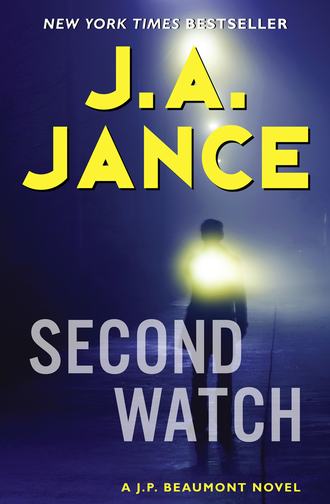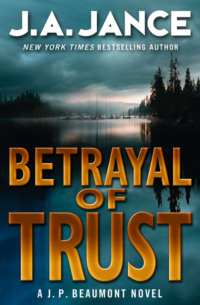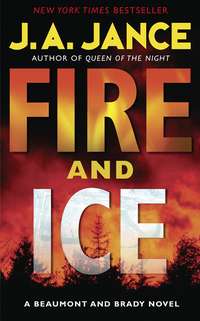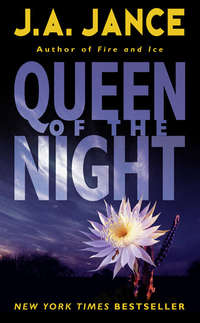
Полная версия
Second Watch
“And where did the crowbar come from in the first place?”
“Our mom’s garage.”
“And how did it get from the garage to the barrel?”
“We took it down the hill on Sunday morning, while Mom was still asleep.”
“Which means you already knew the barrel was there,” Watty concluded.
This time both Donnie and Frankie nodded.
“How?”
“We saw the guy who dumped it,” Frankie said, speaking for the first time. “On Saturday night, we were outside.” He paused and gave Sister Mary Katherine a wary look.
“Go on,” she ordered.
“We had stolen some of Mom’s cigarettes,” he said. “The house next door is empty. We were hiding in the backyard, smoking, when a guy drove into the yard in a pickup with a camper shell on top of it. He drove as far as the end of the driveway. He got out of the truck and pushed something out of the back. When he rolled it out onto the ground, we could see it was a barrel.”
“What kind of pickup?” Watty asked.
“I don’t know,” Frankie said.
“It was a Ford,” Donnie put in.
“Color?”
“It was sort of dark, but we couldn’t tell much about it because it was late at night.”
“How late?”
Donnie shrugged. “After midnight. That’s why you can’t tell our mom. She’d kill us if she knew we were sneaking out of the house when she thought we were in bed.”
“And that’s why you made up the story of finding the barrel on Sunday?”
Donnie nodded.
Watty settled in closer, giving the two boys a hard look. “This pickup truck you saw. Had you ever seen it around before?”
“Not that I remember.”
“Did you see the license plate?”
“No.”
I’ve heard that twins often develop forms of communication that can pass between them in utter silence. I was suddenly under the impression that that was exactly what was going on here. They were both lying about something, but I couldn’t figure out what. I think Watty was getting the same message. Ditto Sister Mary Katherine.
“God knows when you’re not telling the truth,” the good sister remarked.
Both boys flushed beet red. “Please don’t tell our mother,” Donnie begged. “Please. We’ll be in big trouble.”
“So when did you take the crowbar from the garage?” Watty asked.
I closed my eyes and envisioned the house they lived in—a small 1940s vintage brick house with a detached single-car garage at the end of a narrow driveway. The house next door was an exact copy. When they were built, they were probably considered affordable housing for GIs returning from World War II.
“Like I said. We did it in the morning, before she woke up.” Donnie was back to doing the talking for both of them. “We knew there wouldn’t be time to open the barrel before we went to church. That’s why we decided to do it later. We told Mom we wanted to see Charlotte’s Web, even though we didn’t. We got in line at the Cinerama, but as soon as she drove away, we caught a bus back to the Magnolia Bridge. That way we knew we’d have plenty of time to open the barrel before we were supposed to get home. The next showing didn’t start until four thirty.”
“What did you think you’d find when you opened that barrel?” Watty asked.
“Treasure,” Donnie said.
“Money.” That was from Frankie.
They were two similar answers, but not quite the same. Not identical, as it were, and it made me wonder why. Treasure is something you keep; money is something you spend. What neither of them had anticipated finding in the barrel was what was actually there—the horrifying naked body of a murdered young woman.
“You said this all happened after midnight? Isn’t that kind of late for you to be out of the house and unsupervised?”
“It was the weekend,” Donnie said. “We didn’t have to get up for school.”
“Where was your mom?”
Donnie glanced in Sister Mary Katherine’s direction. “She was busy,” he said.
Remembering what Mrs. Fisk had told me, I could well imagine that the boys’ mother had been busy with something other than her sons on a Saturday night.
“And how did you get out of the house without your mother knowing you were gone?”
“We go out through the window in our room,” he said.
“I was by your house the other day,” I said. “I seem to remember seeing streetlights. Are you sure it was too dark for you to see that truck? After all, if you were close enough to see the barrel get pushed over the edge of the yard, you must have been close enough to see more of the truck than you’re telling us.”
“I already said,” Donnie insisted. “It was a Ford. And it was dark. Maybe it was black, or it could have been blue. And it was real loud.”
“Is it possible it belonged to one of your mother’s friends?”
“No!” Donnie said heatedly, unconsciously balling his fists. “And don’t talk about my mother.”
Obviously my comment about his mother’s friends had come a little too close to the truth of the matter. I had no doubt that Donnie had, on occasion, resorted to blows in defense of his mother’s somewhat questionable honor. The look Sister Mary Katherine leveled at me said that this wasn’t news to her, either.
“Is that all?” she asked. Her question was aimed at Detective Watkins, but we both nodded.
“For the time being,” Watty replied.
“All right then,” she said to the boys. “You may go back to your classrooms. And, Donnie,” she added. “You’d better schedule a time to see Father Hennessey.”
“You mean, like, for confession?”
Sister Mary Katherine nodded. “What do you think?” she replied.
“Yes, sister,” he replied. Then, biting his lip, Donnie followed his brother from the room.
“They may look identical,” Sister Mary Katherine observed, watching the two boys hustle from the room. “But there are definitely some differences, especially when it comes to brains. Frankie got held back last year. He’s doing fourth grade for the second time. Donnie is in fifth.”
“And you know about their mother?” I asked.
“Detective …”
“Beaumont,” I supplied.
“Detective Beaumont, we’re in the business of hating the sin and loving the sinner. Someone is paying for the boys to attend this school in the firm hope that we’re preparing them to make better choices with their lives. For all I know, what they witnessed over the weekend may well be part of God’s plan for keeping them on the right path. They did call the incident in, didn’t they?”
“Yes.”
“So they acted responsibly, correct? If it hadn’t been for them, the body of that poor girl might never have been found. Right?”
It was my turn to nod. Sister Mary Katherine seemed to have that effect on everyone—striking people dumb and turning them into complacent nodders, Detective Watkins and myself included.
“Being raised without a father, those boys have a hard enough time holding their heads up in polite society, so I’m asking that you give them a break. Their mother has been known to overreact on occasion. As far as I can see, they’re not suspects, are they?”
“No, but they might lead us to a suspect,” Watty objected. “If they could give us a better description of the vehicle involved …”
“If!” Sister Mary Katherine said derisively. “Let me tell you something for certain. If you rile up their mother about their sneaking out of the house and smoking cigarettes, she’s liable to take after both of them with a belt, because it’s happened before. I don’t know if the mother was the one who did the beating or if someone else did, but the point is, unless you want to accept the responsibility for that—for those two boys being beaten to within an inch of their lives—I suggest you leave Donnie and Frankie out of your crime-fighting equation.”
“Yes, ma’am,” Detective Watkins said, getting up and heading for the door. “Thank you for your help.”
His immediate unconditional surrender surprised me, but I waited until we were outside before I said anything.
“What happened in there?” I asked.
“Donnie and Frankie are off-limits,” he said tersely. “Either we’ll find our killer without their help or we won’t find him.”
“But—” I began.
“I had a stepfather with a belt once,” Watty said. “Been there, done that. If those two boys end up getting into trouble with their mother or with one of her johns, it won’t be on my account, or yours, either. End of story.”
And that was the end of the story, at least as far as Donnie and Frankie Dodd were concerned. Watty and I never interviewed those kids again, and by the time I was assigned to my new partner, Milton Gurkey, the Dodd family had left town.
Just for the hell of it, I picked up my iPad now and tried googling them. Donald Dodd. Frank Dodd. Nothing came of it. Not a single link.
While I was doing my computer search, time had passed. When Nurse Jackie hustled into the room a few minutes later, I was surprised to realize that it was already late afternoon. The sun was going down outside. I looked toward the window Lieutenant Davis had peered out of, expecting to see the Space Needle rising in the distance. Except it wasn’t there. The window was, but the Space Needle wasn’t. The window faced east, not west. There was no view of the Space Needle there in real life, only in my dream.
“I’m working this floor today. Now, what’s wrong with your phone?” Nurse Jackie wanted to know, jarring me out of my window problem. “Your wife’s on the line, and she won’t take no for an answer.”
Examining the phone on the bedside table, Nurse Jackie quickly discovered it was unplugged. As soon as she rectified that situation, the phone began to ring. She handed it over, and Mel was already talking by the time I lifted the phone to my ear.
“When you didn’t answer, I was worried. I was afraid something bad had happened, that there had been some kind of complication.”
“Sorry,” I muttered guiltily. “No complication. I must have pulled the plug on the phone without realizing it. What’s up?”
“All hell has broken out,” Mel replied. “One of the protesters from last week—one who got Tasered—was found unresponsive in his apartment earlier this morning. An ambulance crew was summoned. They tried to get his heart going again, but it didn’t work. He was DOA by the time they got him to the hospital. So now it’s gone from being voluntary S.H.I.T. squad involvement to compulsory involvement. In other words, I won’t be home tonight. Do you want me to call Kelly and see if she can come up from Ashland?”
“Don’t call anyone,” I told her. “I’m fine. They had me up and walking twice today. The physical therapist says I’m doing great.”
“Are you sure?”
“I’m sure. You’ve got a job to do, now do it.”
It was easy to give her a pep talk, but I knew that there was just a tiny hint of jealousy behind my words. Because I was feeling left behind. Mel was out doing what I usually did—what I would have been doing if my knees hadn’t betrayed me and put me on the disabled list.
“I’ll call you,” she said. “Don’t unplug your phone again, okay?”
“Okay,” I said. “I promise. You take care.”
Good to my word, I turned on my cell phone. I had a number of missed calls and six messages. All of the messages were from Kelly, and they all said the same thing: “Call me.”
I did. The relief in her voice as she answered pressed my guilt button in a big way. “Sorry,” I said. “I was sleeping.”
“It’s a good thing you called,” she groused. “I was about to throw the kids in the car and head north to see you.”
“You don’t need to do any such thing. I’m fine, really. They’ve already had me up and walking around. The nurse is here right now, waiting to take me on another stroll. Right?”
“If you’re up for it, I am,” Nurse Jackie said.
“Where’s Mel?” Kelly asked. “I thought she was going to be at the hospital with you.”
Having women fussing and clucking over me tends to get my back up.
“Mel is out working. Somebody has to, you know.”
“If you decide you want me to come up, I will.”
“I’m fine. I’ll be here in the hospital for at least several more days. Mel might want some help after I get home, but for now I’ve got it covered.”
“We’ve got it covered,” Nurse Jackie corrected. She was standing with her hands on her hips, tapping her toes with impatience. “Now are we doing that walk or not? If not, I have other patients to see.”
“I’ve got to go,” I told Kelly with no small amount of relief. “Duty calls.”
CHAPTER 7
After our measured stroll—there’s no such thing as racewalking when you’re using a walker—I came back to my room to a stream of visitors. Evidently Mel’s one-day moratorium had been lifted, and visitors came in droves to see me.
People from work stopped by, including Squad B’s secretary, Barbara Galvin, who arrived armed with a box of chocolates, and Harry I. Ball, who came prepared to eat them. Two of the ladies from Belltown Terrace showed up. One of them was a knee-replacement veteran and the other was a knee-replacement candidate, so their visit was really more of a recon expedition than it was a cheerleading session.
So pardon me if I’m not all cheery about having people sitting around on uncomfortable chairs, staring at me while I’m only half dressed and lying in bed, especially when the one person I would have liked to have had there was off in the wilds of Bellingham chasing bad guys.
I was glad when the last of the visitors finally got shooed out and Nurse Jackie showed up for her last set of vitals and meds.
“How are you on pain meds?” she asked as she fastened the blood pressure cuff around my arm.
“Fine,” I said.
She glowered at me. “So you’re Superman?” she demanded. “You’re telling me you don’t need any pain meds?”
“They give me weird dreams,” I admitted. “I’d like to back off on them some.”
“Let me tell you something,” she said. “You’re not the first tough guy who’s been wheeled onto this floor. If you want those fine new knees of yours to work, you need to do the rehab. If you don’t take the pain meds, you won’t sleep and you won’t do the rehab, and if you don’t do the rehab … In other words, dreams don’t kill you, but don’t waste my time by not doing the rehab. Get my drift?”
I nodded. Nurse Jackie was about five feet nothing and as round as she was tall, but she had a glare that would have set that long-ago nun, Sister Mary Katherine, back on her heels. I got the message.
“Yes, ma’am,” I said. “Give me the damn pills.”
She gave them to me, along with my blood thinners and antibiotics and stool softeners, and stood right there watching until I had downed them all.
“Good boy,” she said with a grin and a pat on the shoulder before she turned down the lights and hustled out of the room.
I lay there in the semidarkness, still thinking about my earlier visitors and wondering where the drugs would take me that night. It was a little like standing in line at a roller coaster when you already have your ticket and you’re just waiting for the attendant to lock you into your car. You more or less know what’s coming, but you don’t know how bad it’s going to be.
It still bothered me that in my dream, Lieutenant Davis had been standing in front of a window view that didn’t exist, but since he didn’t exist either, it seemed odd to find that odd. What really surprised me was how much his appearance had triggered my memories of that time. Usually I keep them locked away in a tight little box—boxes, actually: a literal one, a cigar box inside a banker’s box, and a mental one. It was that one I scrolled through as the hospital corridor went still and silent outside my room.
Конец ознакомительного фрагмента.
Текст предоставлен ООО «ЛитРес».
Прочитайте эту книгу целиком, купив полную легальную версию на ЛитРес.
Безопасно оплатить книгу можно банковской картой Visa, MasterCard, Maestro, со счета мобильного телефона, с платежного терминала, в салоне МТС или Связной, через PayPal, WebMoney, Яндекс.Деньги, QIWI Кошелек, бонусными картами или другим удобным Вам способом.






